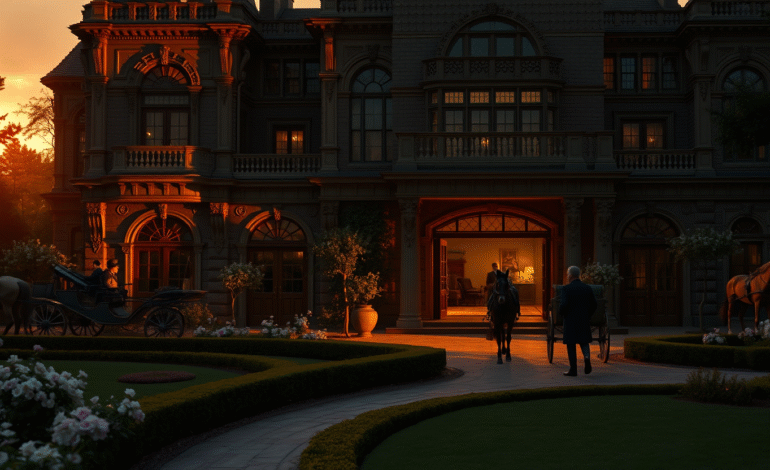Startup Aims to Rebuild Lost Footage from Orson Welles’ Masterpiece The Magnificent Ambersons with AI Technology, Sparks Debate Among Fans and Experts

A groundbreaking AI-focused startup, known as Fable, has unveiled an audacious project to recreate the missing 43 minutes of Orson Welles’ acclaimed film “The Magnificent Ambersons,” first released in 1942.
This venture may appear puzzling, given that Fable positions itself as the “Netflix of AI” and recently secured funding from Amazon’s Alexa Fund. However, the company has developed a platform enabling users to create cartoons using AI prompts, with plans to extend this capability to Hollywood intellectual property in the future.
In fact, the technology has already been utilized for unauthorized “South Park” episodes. Now, Fable is introducing a new AI model capable of generating extensive, intricate narratives. Over the next two years, filmmaker Brian Rose — who has dedicated five years to digitally reconstructing Welles’ original vision — intends to employ this model to recreate the lost footage from “The Magnificent Ambersons.”
It is noteworthy that Fable has yet to acquire the rights to the film, making it an experimental demonstration that is unlikely to reach public release.
One might question the choice of “Ambersons” for digital resurrection, given its relative obscurity compared to Welles’ more celebrated works. While “Citizen Kane” often grabs headlines as the greatest film ever made, “Ambersons” is remembered as a lost masterpiece that was significantly altered by the studio.
The movie’s status — a symbol of what might have been — seems to have piqued Fable and Rose’s interest. However, it’s crucial to highlight that the continued relevance of “The Magnificent Ambersons” today is primarily due to Welles — his influence, the impact on his Hollywood career, and how even in its truncated form, the film showcases his remarkable storytelling genius.
Regrettably, Fable appears not to have reached out to Welles’ estate, which has voiced criticism of the project. David Reeder, representing the estate for Welles’ daughter Beatrice, deemed it an attempt to capitalize on Welles’ creative legacy, stating that it will result in nothing more than “a purely mechanical exercise without any of the uniquely innovative thinking [of] a creative force like Welles.”
Despite this criticism, Reeder seems less concerned about the prospective recreation of “Ambersons” and more about the lack of communication regarding the project. It is worth noting that the estate has embraced AI technology for VO work with brands.
While Fable’s approach to the project raises questions, it appears that Rose is driven by a genuine desire to honor Welles’ vision. For instance, in discussing his motivation for the recreation, Rose lamented the loss of “a four-minute-long, unbroken moving camera shot whose destruction is a tragedy,” with only 50 seconds of the shot remaining in the recut film.
I share Rose’s sense of loss — but I also believe this is a tragedy that AI cannot undo.
No matter how convincingly Fable and Rose manage to reconstruct their own version of that tracking shot, it will be their interpretation, not Welles’, featuring digital replicas instead of the original cast members. The final product will not recreate Welles’ version of “The Magnificent Ambersons” that RKO dismantled over 80 years ago. Barring a miraculous discovery of lost footage, that version remains forever lost.






